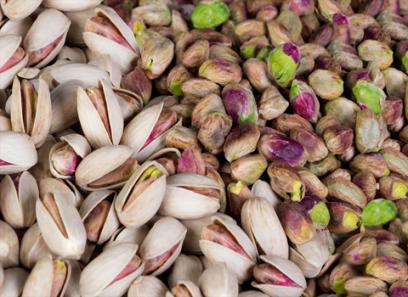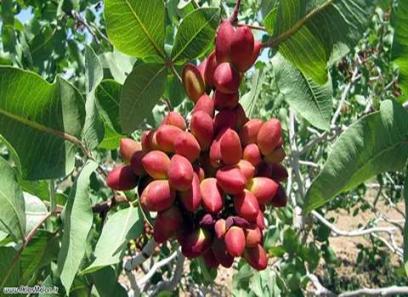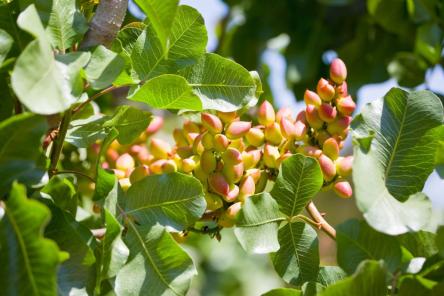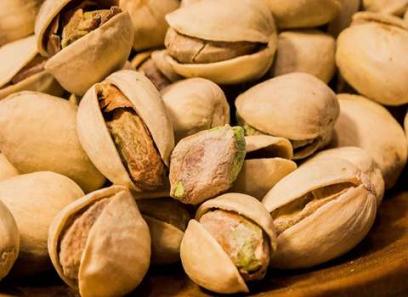As the world embraces the urgency of becoming more environmentally conscious, innovative solutions are gaining popularity.
.
 One such solution is utilizing pistachio shells to produce charcoal, providing a sustainable alternative to conventional options.
One such solution is utilizing pistachio shells to produce charcoal, providing a sustainable alternative to conventional options.
This article explores the growing trend of pistachio shell charcoal, its benefits, and its potential impact on the environment.
1. Environmental Sustainability: Pistachio shell charcoal offers a sustainable option for reducing waste and establishing a circular economy.
Pistachio shells, which were once considered a byproduct, can now be transformed into a valuable resource.
By diverting these shells from landfills and converting them into charcoal, we can significantly reduce greenhouse gas emissions and promote a more sustainable future.
2. High Energy Efficiency: Pistachio shells have a high energy content, making them an efficient source of heat when converted to charcoal.
This energy efficiency makes pistachio shell charcoal an attractive option for various applications such as heating, cooking, and industrial processes.
Its long-lasting and uniform burn characteristics provide a practical and cost-effective solution for both commercial and residential users.
3. Positive Economic Impact: The production of pistachio shell charcoal creates new economic opportunities.
Farmers and processors can utilize this waste product to generate additional income streams.
The demand for sustainable alternatives also fuels job creation in the manufacturing and distribution sectors, leading to a more robust local economy.
..
 4. Reduced Carbon Footprint: Compared to traditional charcoal production, the carbon footprint of pistachio shell charcoal is significantly lower.
4. Reduced Carbon Footprint: Compared to traditional charcoal production, the carbon footprint of pistachio shell charcoal is significantly lower.
Pistachio shells naturally contain high levels of carbon, and when processed correctly, the resulting charcoal retains the carbon content, reducing the need for deforestation and reducing emissions associated with conventional charcoal sources.
By utilizing this renewable resource, we can minimize our reliance on fossil fuels and contribute to mitigating climate change. 5. Versatile Applications: Pistachio shell charcoal offers a versatile solution for various industries.
Its high calorific value makes it suitable for a range of applications, including water filtration, gardening, and agricultural practices.
The unique properties of pistachio shell charcoal also make it an excellent alternative to coal in industrial processes, reducing environmental impact while maintaining the required heat output.
Conclusion: In an era where sustainable practices are crucial for the health of our planet, pistachio shell charcoal emerges as a viable and eco-friendly alternative.
Its production not only reduces waste but also provides economic opportunities while significantly reducing carbon emissions.
By incorporating pistachio shell charcoal into our daily lives, we can contribute to a greener future, promoting both environmental sustainability and economic growth.
Embracing this trend can pave the way for a more sustainable society, where waste is transformed into valuable resources, one pistachio shell at a time.
Furthermore, the production of pistachio shell charcoal supports the concept of a circular economy.
Rather than discarding the shells as waste, they can be repurposed and transformed into a valuable commodity.
This not only reduces the strain on landfills but also minimizes the need for extracting and processing raw materials.
…
 The use of pistachio shell charcoal also aligns with the principles of responsible forestry.
The use of pistachio shell charcoal also aligns with the principles of responsible forestry.
By reducing our reliance on traditional charcoal sources, such as wood from forests, we can help mitigate deforestation, preserve natural habitats, and protect the biodiversity of our planet.
In addition, the production process of pistachio shell charcoal involves less environmental pollution compared to traditional charcoal production methods.
Conventional charcoal production often involves the burning of wood in inefficient kilns, which emits harmful pollutants into the atmosphere.
The use of pistachio shells, on the other hand, produces significantly fewer emissions, contributing to cleaner air and better overall air quality.
It’s worth noting that the quality of pistachio shell charcoal is not compromised.
It provides a consistent and reliable source of heat, making it a suitable option for both domestic and commercial use.
Whether it’s for grilling, heating, or even as a source of fuel for industrial processes, pistachio shell charcoal proves to be both efficient and effective.
As the demand for sustainable and eco-friendly products continues to grow, pistachio shell charcoal presents businesses with an opportunity to meet consumer preferences and contribute to a more sustainable future.
By embracing this trend, companies can enhance their brand image, attract environmentally-conscious customers, and position themselves as leaders in sustainability.
In conclusion, pistachio shell charcoal represents a growing trend in the quest for sustainable alternatives.
Its benefits extend beyond reducing waste and promoting a circular economy.
By reducing carbon footprints, supporting responsible forestry practices, and minimizing environmental pollution, pistachio shell charcoal offers a viable solution for a greener future.
Embracing this innovative option not only contributes to a healthier planet but also presents economic opportunities and enhances societal well-being.
As the world continues to prioritize sustainability, the utilization of pistachio shell charcoal emerges as a game-changer in the pursuit of a greener, more sustainable society.




